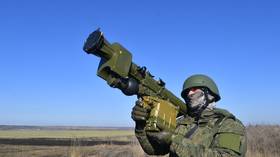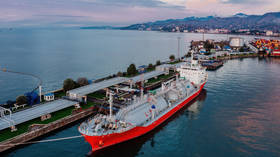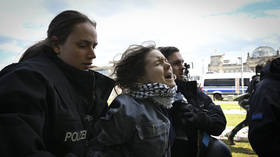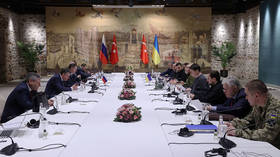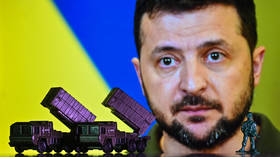Russia’s planned go-it-alone orbital space station could replace aging & deteriorating international ISS, suggests Roscomos head
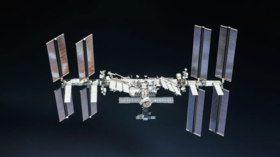
The planned Russian Orbital Service Station (ROSS), an inhabited satellite scheduled to be fired into the cosmos in 2025, may be used as a prototype to replace the aging International Space Station (ISS) once it is decommissioned.
That’s according to the head of Roscosmos, Dmitry Rogozin. Roscosmos is Russia’s state-run space agency and is responsible for the country’s cosmonautics programs and research.
With Russia’s obligations to participate in the ISS program coming to an end in 2025, there has long been speculation about the future of the inhabited satellite. Earlier this year, President Vladimir Putin approved the construction of ROSS, a Moscow-funded replacement.
Also on rt.com Moscow to QUIT International Space Station in 2025 unless Washington lifts restrictive sanctions, says Russian space boss“There is so much interest in the Russian Orbital Service Station that we think it could be the prototype for a new ISS, with even more international participation,” Rogozin said on Tuesday. “We have felt tremendous interest.”
The ISS, which first blasted into space in 1998, has repeatedly struggled with cracks and other issues in recent years. In 2018, the station’s planned lifespan was extended to 2030, although there are worries that it might not last that long.
It is currently run as a joint operation between America’s NASA, Russia’s Roscosmos, Japan’s JAXA, and Canada’s CSA, alongside the European Space Agency. According to Rogozin, ROSS is open to even broader international cooperation.
Under current plans, the Russian orbital satellite will consist of three to seven modules and will be able to carry up to four people.
Earlier this month, a Russian film crew made up of actress Yulia Peresild and director Klim Shipenko were sent to the ISS to record the first-ever feature-length movie made in space. They successfully returned to Earth on October 17.
If you like this story, share it with a friend!




